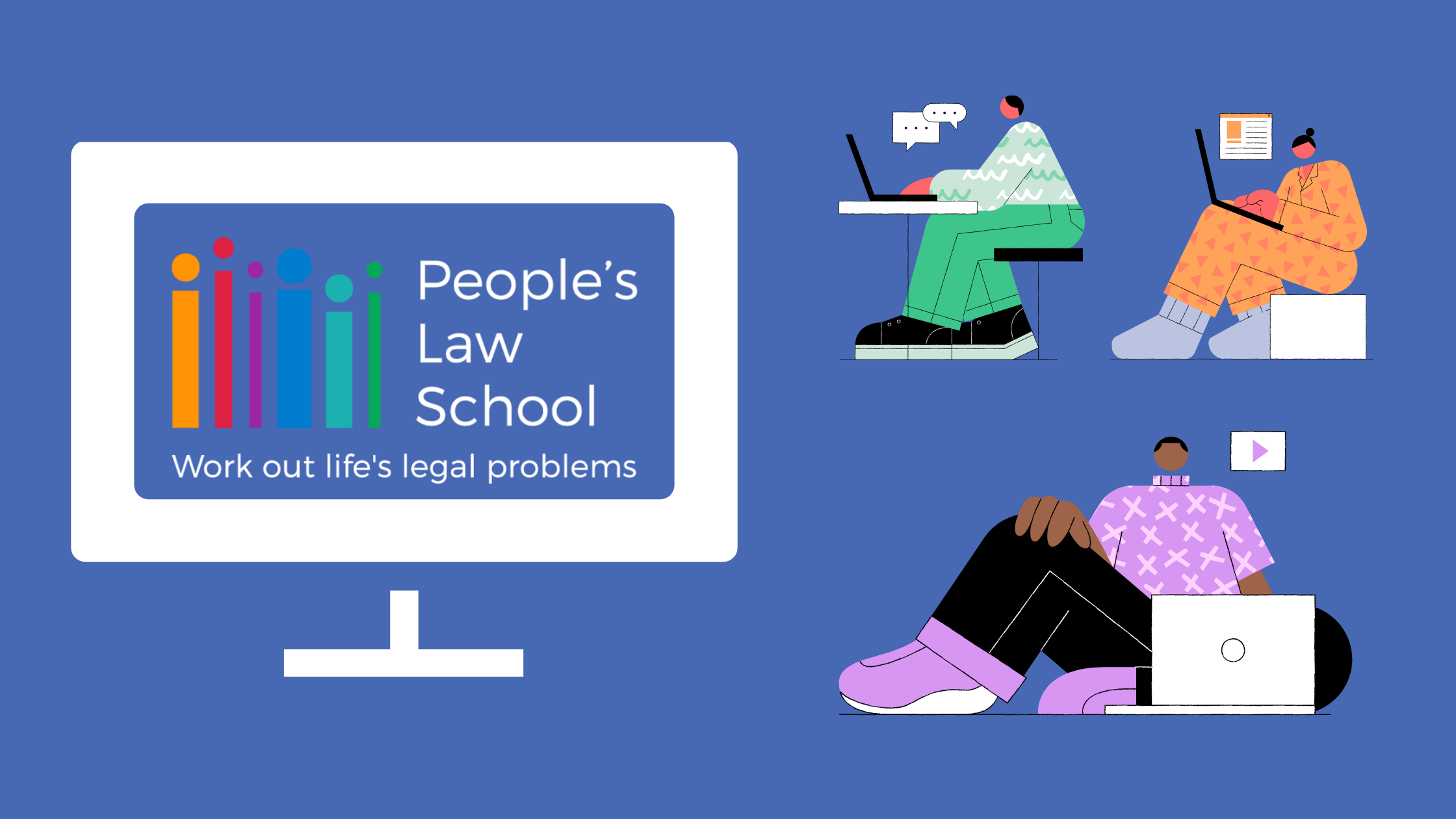New Legal Webinars Built on Feedback from Users

On March 16th, amid rising COVID-19 cases and restrictions, People’s Law School temporarily closed its office to in-person services – traditionally an important source of free legal information. But as this storm knocked the world off balance, for People’s Law School and its experimental, evidence-driven culture, this was momentary turbulence, and its team quickly began to bolster its online offerings and address topics related to COVID-19.
The School is no stranger to technology. They began using cloud-based platforms more than five years ago, and those platforms are now used for emails, team meetings, document collaboration, and document storage.
With their users top of mind, the School knew that those users would be facing many challenges related to the pandemic.
They drew on their philosophy of using evidence-based research to determine which of those challenges they could address. They drew, as they always do, from surveys, comments on their website, questions from their Q&A service, emails received from the public, information from legal aid research, and the School’s ongoing tracking of trends and occurrences in its sector and in the external environment .
In light of COVID-19, the School’s team of lawyers were able to draw on even more sources, from their existing knowledge from already-gathered data to the government’s response to the pandemic and how the legal profession was responding. With that, they began developing material that addressed legal issues as well as other issues with legal dimensions, such as health, finance, family, and housing.
They found that, just as pre-COVID-19, the issues the School addresses are never purely legal. People’s problems are often messy with both legal and non-legal dimensions. In January, the team had a year-long plan to develop content relating to neighbours, nuisance, and other relevant topics at that time; starting on March 16th, the lawyers shifted priorities, developing COVID-19-related material with the goal to produce this new body of content quickly while keeping it accurate and up to date. In April, they started rolling out the material on their website, and since then, as the pandemic evolves, they have continued to update that material, in tandem with their original work plan.
The temporary discontinuation of in-person services--both at its offices and at the community-based organizations that host the School’s classes-- had cut off the public’s access to live information sessions, which the School has provided since 1972. At those sessions, volunteer lawyers deliver one hour sessions on law-related topics. The School, in Fall 2019, started developing a plan to deliver webinars as an additional resource for the public by June 2020. On March 16th, as they started developing new pandemic-related content, they also decided to advance the launch date for their webinars and focus them on COVID-19 related matters as well. As a result, on April 3, 2020, the School presented its first webinar on worker rights during the pandemic: “Your Rights as a Worker in the Time of Coronavirus”. It was produced by a lawyer on the school’s team, working in collaboration with a lawyer with expertise in the topic.
After each webinar, the School’s team engages in “value-added” post-production activities. First, the School sends attendees a survey for feedback. That feedback influences both the format and the topics of subsequent webinars. For example, after the initial webinar, attendees wanted an extended Q&A session with the lawyer/presenters , so the next webinar on that topic was designed to accommodate this requests. The team has also used questions sent to them by email or survey to inform subsequent webinar content.
Another post-production activity is the creation of “show notes”. Inspired by the podcasting world, show notes list important quotes from the webinar with timestamps that users can click on to jump to that point in time in the webinar. Finally, at the end of every webinar, the School also sends each registrant--whether they actually attended the webinar or not--a link to the recorded webinar as well as the show notes.
It is important to note the role of the legal community throughout BC in the webinar development process – the bar has been very willing to work with the School to produce their new style of webinar. Whereas webinars often comprise a speaker or panel and an online presentation, the School’s webinars are designed to be a dialogue between the subject matter expert/lawyer and a staff lawyer – a staff lawyer takes an active role in collaborating with the presenter(s) to identify topics to cover and novel ways of presenting the topics. The result: webinar attendees witness a conversation between moderator and presenter featuring common law-related problems and their corresponding solutions.
Despite the extra workload required by this style of webinar , the School is committed to it. Its approach is rooted in an understanding – gained through evidence-based research – of how adults learn., As of early November, the team had delivered six webinars on topics ranging from EI and benefits to making a will, with more webinars scheduled. In September 2020, the People’s Law School received some positive international coverage on its work on a website funded by the Legal Education Foundation in the UK: “Community Outreach in a digital world: the People’s Law School responds to Covid 19”.
The People’s Law School team is dedicated to continuous improvement of its resources and services; listening to its users is an important element of this. Stay tuned for another story that illuminates how being evidence-based and experimental is catalyzing what they offer to their users.

